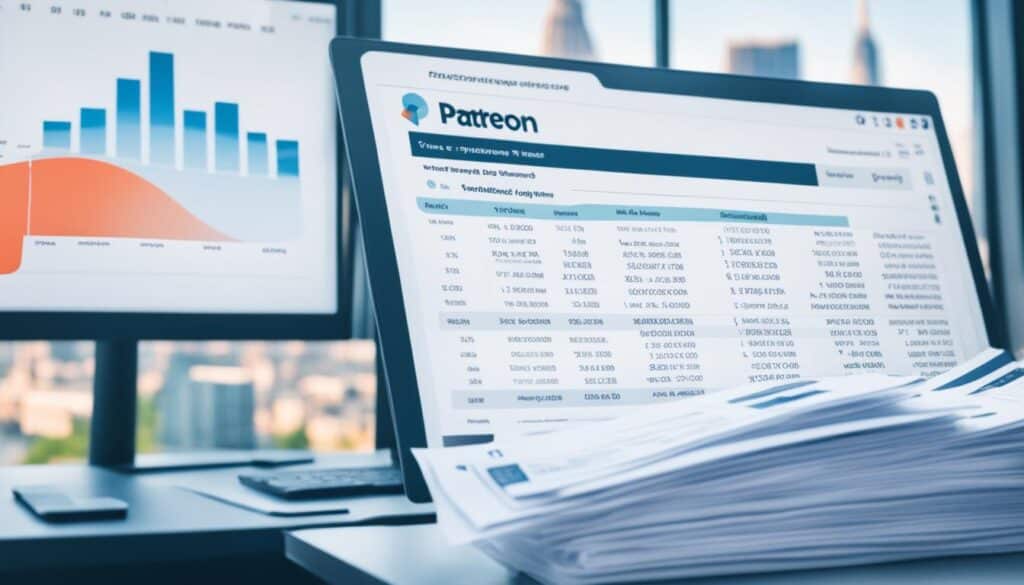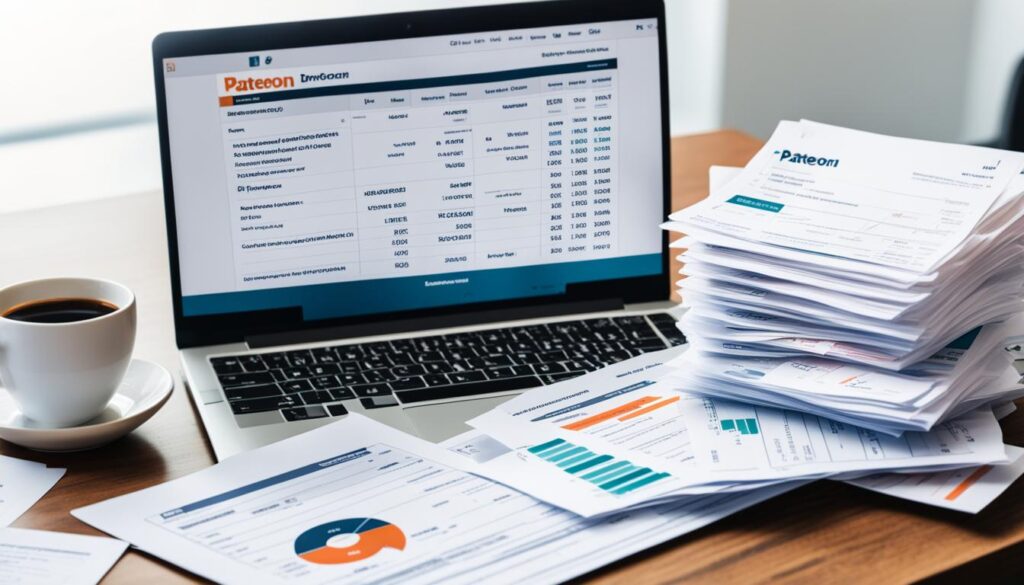Imagine this: you’re a passionate creator on Patreon, sharing your art, music, or unique content with the world. Your patrons, who appreciate and admire your work, eagerly support you by making donations on the platform. It’s a beautiful symbiotic relationship that allows you to continue doing what you love while your patrons feel like they’re a part of something special.
But amidst the creative excitement, a nagging question often lingers: are Patreon donations tax deductible? After all, both you and your patrons want to make the most of your contributions while staying on the right side of the taxman.
Let’s unravel the complexities together, and shed light on the tax implications and deductibility of Patreon donations.
How are Patreon Donations Taxed in the United States?
When it comes to Patreon donations, tax considerations are an important aspect for both creators and patrons. In the United States, Patreon donations are generally treated as taxable income for creators. However, it’s crucial to understand the specifics of tax deductibility criteria, claiming tax deductions for Patreon donations, and any potential tax benefits associated with Patreon contributions.
So, how does the taxation process work for Patreon donations in the United States?
Firstly, it’s essential to note that Patreon does not withhold taxes on the contributions received. Therefore, it is the responsibility of the creators to accurately report and pay their income taxes. This means that if you are a creator on Patreon, you will need to keep track of the donations you receive and report them as part of your annual income when filing your tax return.
But what if you are a non-U.S. resident creator receiving payments from U.S. patrons?
In that case, non-U.S. resident creators might need to comply with the U.S. tax code and potentially withhold a portion of the payments made by their U.S.-based patrons. Generally, the withholding rate is set at 30 percent, but it’s important to note that this rate could be reduced or exempted if there is an income tax treaty between the creator’s country of residence and the United States.
Given the complexities of international tax obligations, it is highly recommended for Patreon creators, especially those outside of the United States, to consult with a local tax advisor to ensure compliance with their specific tax obligations. With professional guidance, creators can navigate the intricacies of cross-border tax regulations and determine the appropriate withholding, if required.
Understanding the Tax Deductibility Criteria and Benefits
When making Patreon donations, patrons may wonder if they qualify for any tax benefits or if their contributions are tax deductible.
So, are Patreon donations tax deductible for patrons?
The deductibility of Patreon donations primarily depends on the tax laws of the country in which the patron resides. In many countries, including the United States, Patreon donations are not considered charitable contributions and, therefore, are not tax deductible.
However, it’s essential to consult with a tax professional in your specific jurisdiction to determine the tax treatment of your Patreon donations. Tax laws can vary, and there may be specific scenarios where a portion of your contribution could potentially be eligible for tax deductions.
In conclusion, while Patreon donations are generally taxable income for creators in the United States, it’s essential for both creators and patrons to seek professional tax advice and understand their individual tax obligations. By working with a tax professional, creators can ensure compliance with tax regulations and potentially maximize their tax benefits, while patrons can gain a clearer understanding of their contribution’s tax implications.
| Key Points | Tax Considerations for Patreon Donations in the U.S. |
|---|---|
| Patreon donations | Treated as taxable income for creators |
| Patreon withholding taxes | Patreon does not withhold taxes on contributions |
| Non-U.S. resident creators | May be required to withhold taxes on payments from U.S.-based patrons, subject to income tax treaties |
| Tax deductions for patrons | Patreon donations are typically not tax deductible |
| Consulting a tax professional | Recommended for both creators and patrons to ensure compliance and understand individual tax benefits |
Tax Reporting Requirements for Patreon Creators
Patreon creators, especially those in the United States, need to be aware of their tax reporting obligations. When it comes to reporting Patreon income, creators who meet certain income thresholds are required by law to report their earnings on Form 1099-K. This form reports the gross earnings from the platform, excluding fees and refunds.
It is important to note that Patreon does not withhold taxes or provide individualized tax advice to creators. Therefore, it is crucial for creators to consult with a local tax professional to ensure they are meeting their tax obligations and accurately reporting their income from Patreon.

Creators located outside of the United States may also have their own tax reporting requirements based on the laws of their own country. It is advisable for non-U.S. creators to familiarize themselves with the tax regulations of their country and consult with a tax professional who is well-versed in international tax matters.
Here is an example of how the income reporting process works for Patreon creators in the United States:
| Income Level | Tax Reporting Obligations |
|---|---|
| $20,000 or more | Report Patreon income on Form 1099-K |
| Less than $20,000 | No specific reporting requirement, but still need to report income |
Remember, it is always better to ensure full compliance with tax regulations to avoid any potential penalties or issues with tax authorities. Seeking the guidance of a tax professional who specializes in the tax reporting obligations of Patreon creators can provide valuable assistance and peace of mind.
Business Expenses and Tax Deductions for Patreon Creators
As a Patreon creator, you have the opportunity to deduct certain business expenses from your taxable income, helping you maximize your bottom line. By claiming these write-offs, you can potentially reduce your overall tax liability and keep more money in your pocket. Let’s explore the types of expenses that may be eligible for tax deductions:
Supplies and Materials
Whether it’s art supplies, software licenses, or office stationery, supplies and materials directly related to your creative process may qualify as deductible expenses. Keep track of your purchases and receipts to substantiate these expenses when filing your taxes.
Equipment and Software
If you need specialized equipment or software to create your Patreon content, you may be able to deduct the cost of these assets. This includes cameras, microphones, graphic design software, and editing tools. Remember to separate personal use from business use to ensure accurate deductions.
Marketing and Advertising Costs
Promoting your Patreon campaign is crucial for attracting new patrons and growing your business. The expenses incurred in marketing and advertising, such as website development, social media ads, and promotional materials, can be deductible. Document your marketing expenses to support your deductions.
Travel Expenses
If your Patreon activities involve attending conventions, meetings, or events, you may be able to deduct travel expenses such as transportation, lodging, and meals. As with all deductions, it is important to maintain detailed records and receipts to substantiate your claims.
Other Expenses
There may be other expenses directly related to your Patreon activities that are eligible for tax deductions. This could include fees for professional services like graphic design or web development, fees for payment processing or platform subscriptions, and even expenses for educational materials or courses to enhance your creative skills.
Remember, it is crucial to distinguish personal expenses from legitimate business expenses. Only claim deductions for expenses that are directly related to your Patreon endeavor and keep accurate records to support your claims.
Consulting with a tax professional is highly recommended to ensure you fully understand which expenses are eligible for deductions and to maximize your tax benefits. They can provide expert advice tailored to your individual situation, helping you navigate the complex world of tax deductions.
Now, with a clear understanding of potential business expenses and tax deductions, you can strategically manage your finances as a Patreon creator and optimize your tax situation.
Keep in mind that tax laws can change, and it’s important to stay up to date with the latest regulations and consult with a tax professional each year to ensure compliance with any new requirements or limitations.
Tax Obligations for Non-U.S. Patreon Creators
As a non-U.S. Patreon creator, it’s important to understand your tax obligations based on your country of residence and the applicable tax laws. If you receive payments from patrons in the United States, you may be subject to additional tax requirements.
If you fall into this category, you might need to withhold and remit a certain percentage of the payments you receive from your U.S. patrons to the U.S. government. However, there is a possibility of reducing this tax liability if your country of residence has an income tax treaty with the United States that provides for a lower tax rate or exemption.
To ensure compliance with your tax obligations and take advantage of any applicable tax exemptions or deductions, it’s crucial to consult with a tax professional who is well-versed in international tax implications for Patreon creators. They can help you navigate the complexities of cross-border taxation and provide personalized guidance based on your specific circumstances.
By collaborating with a tax professional, you can gain clarity on your tax obligations, strategize your tax planning, and ultimately optimize your tax situation as a non-U.S. Patreon creator.
Key Takeaways:
- Non-U.S. Patreon creators may have different tax obligations based on their country of residence and its tax laws.
- If you receive payments from U.S. patrons, you might be required to withhold and remit a certain percentage to the U.S. government.
- Income tax treaties between your country of residence and the United States could provide for a lower tax rate or exemption.
- Consulting with a tax professional specializing in international tax implications is essential to ensure compliance and optimize your tax situation.

Sales Tax and VAT Considerations for Patreon Creators
Patreon creators need to be aware of the potential sales tax and value-added tax (VAT) obligations related to their Patreon activities. The location and nature of these activities determine whether sales tax or VAT applies.
In the United States, sales tax may be applicable to tangible goods or services provided by creators. This means that if you offer physical merchandise or specific services through Patreon, you may need to collect and remit sales tax on those transactions. Your tax obligations may vary depending on the state(s) in which your patrons reside.
On the other hand, if you have European patrons, it’s important to consider VAT. Many countries in the European Union require VAT to be levied on contributions made by European patrons. This means that you, as a Patreon creator, may be required to collect VAT on the pledges from your European patrons and remit it to the respective tax authorities.
Patreon understands the complexity of these transaction taxes and has implemented systems to assist creators. They collect and remit sales tax and VAT on behalf of creators, simplifying the process and ensuring compliance with tax regulations. However, it’s still essential for creators to have a clear understanding of the sales tax and VAT rules in their specific jurisdictions to ensure full compliance.
To navigate these tax obligations effectively, consult with a tax professional who specializes in sales tax and VAT. They can provide guidance tailored to your specific Patreon activities and help you stay on top of your tax obligations.
Summary of Sales Tax and VAT Considerations
| Tax Type | Applicability | Responsibility |
|---|---|---|
| Sales Tax | Applies to certain tangible goods or services provided by creators; varies by state | Creators may need to collect and remit sales tax on relevant transactions |
| VAT | Levied on contributions made by European patrons | Creators may need to collect and remit VAT to the respective tax authorities |
Remember, staying compliant with sales tax and VAT regulations is crucial to avoid potential penalties and legal issues. Seek professional advice and keep yourself informed about the tax requirements specific to your Patreon activities.
Tax Filing and Payment Process for Patreon Creators
As a Patreon creator, it’s essential to understand the tax filing and payment process to ensure compliance with your tax obligations. Filing your taxes correctly and paying the appropriate amount of taxes on your Patreon income is crucial. In the United States, the following steps can guide you through the process:
- Gather all the necessary tax documents, such as Form 1099-K, which reports your gross earnings from Patreon.
- Fill out the appropriate forms accurately, including Form 1040, Schedule C, and Schedule SE. These forms help you report your Patreon income and calculate your self-employment tax.
- Consider using accounting software or consulting with a tax professional to ensure you are filing your taxes correctly and taking advantage of all eligible deductions.

Filing your taxes as a Patreon creator is a vital part of your financial responsibility. By accurately reporting your income and fulfilling your tax obligations, you can avoid potential penalties and issues with tax authorities.
Now, let’s take a look at a table summarizing the tax filing and payment process for Patreon creators in the United States:
| Steps | Description |
|---|---|
| Gather Tax Documents | Collect all necessary tax documents, such as Form 1099-K, which reports your gross earnings from Patreon. |
| Complete Forms | Fill out Form 1040, Schedule C, and Schedule SE accurately to report your Patreon income and calculate your self-employment tax. |
| Consider Professional Help | Use accounting software or consult with a tax professional to ensure accurate filing and maximize eligible deductions. |
Note: The table is not intended to replace professional tax advice. It is always recommended to consult with a tax professional who can provide personalized guidance based on your specific circumstances.
Seek Professional Tax Advice for Patreon Tax Matters
Being a Patreon creator comes with its own set of unique challenges and considerations, especially when it comes to taxes. With the potential tax implications and the ever-changing landscape of tax laws, it is crucial for creators to seek professional tax advice to navigate their tax matters effectively.
A tax professional can provide personalized guidance tailored to your specific circumstances as a Patreon creator. They will take into account factors such as your country of residence, income level, and expenses to help you understand and comply with your tax obligations. By consulting with a tax professional, you can ensure that you are maximizing your tax deductions, minimizing your tax burden, and avoiding any potential penalties or issues with tax authorities.
Maintaining accurate records is essential for Patreon creators, as it helps you stay organized and ready for tax season. Additionally, staying up to date with any changes in tax laws is crucial, as these changes can have an impact on your tax situation as a creator. By consulting with a tax professional on an ongoing basis, you can adapt to these changes and stay in compliance with your tax obligations.
When it comes to tax advice for Patreon creators, relying on a tax professional can give you peace of mind knowing that you are receiving expert guidance. So, don’t hesitate to reach out and consult with a tax professional who can help you navigate the complexities of your Patreon tax matters and ensure that you are on the right track.








